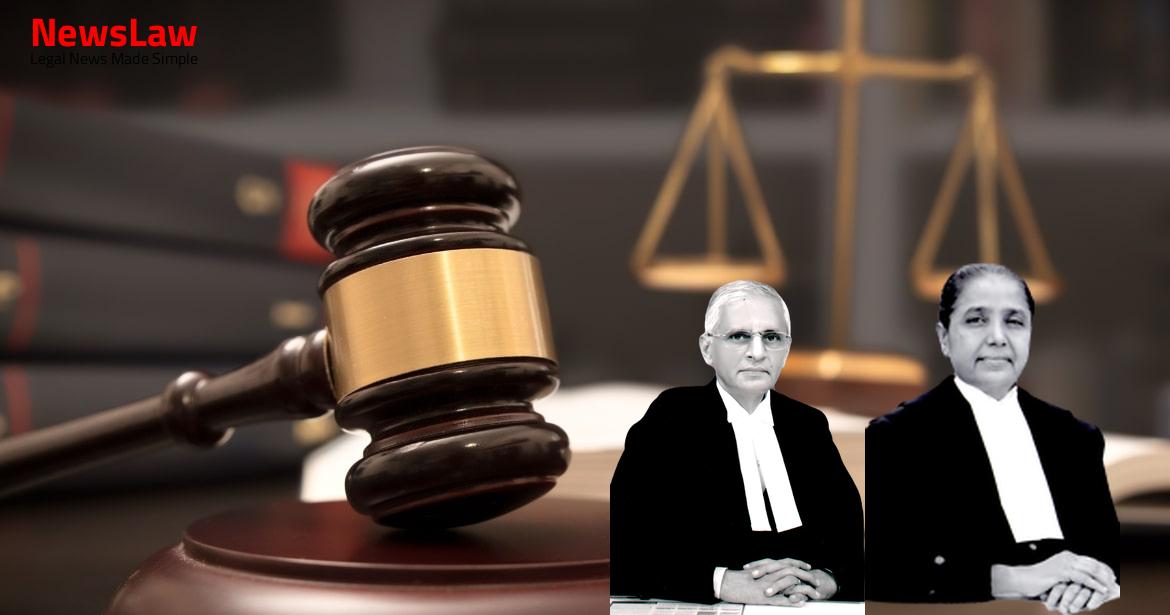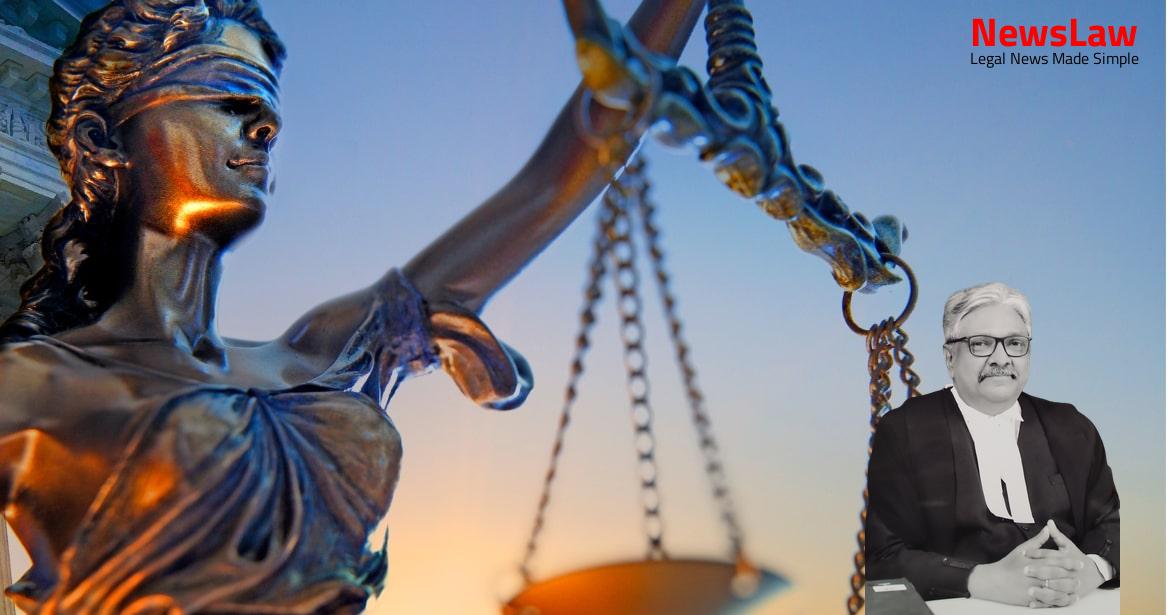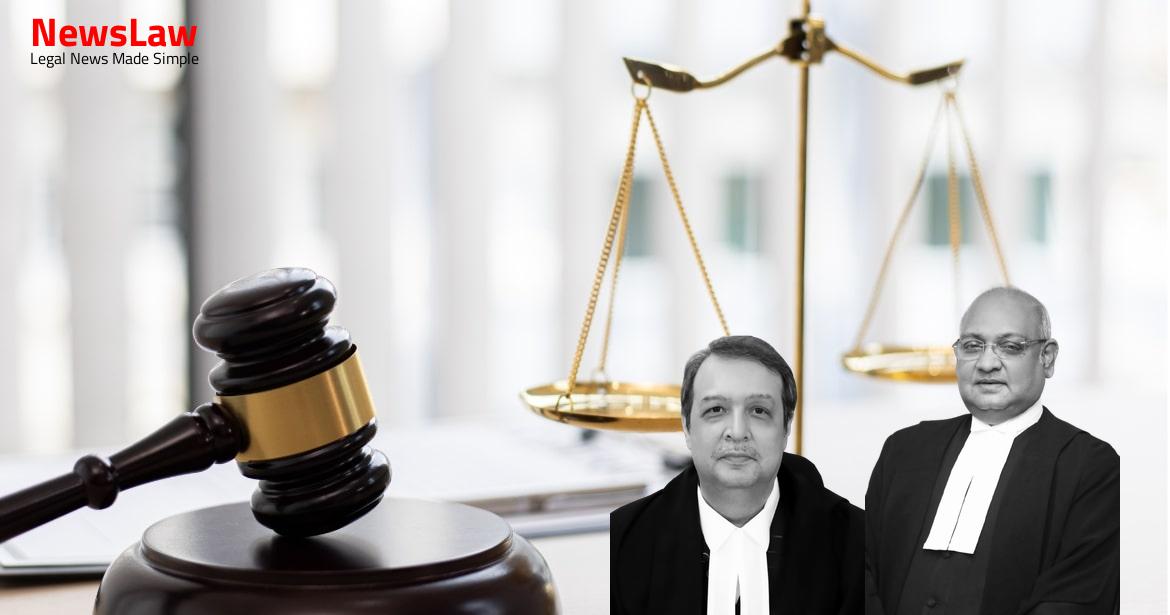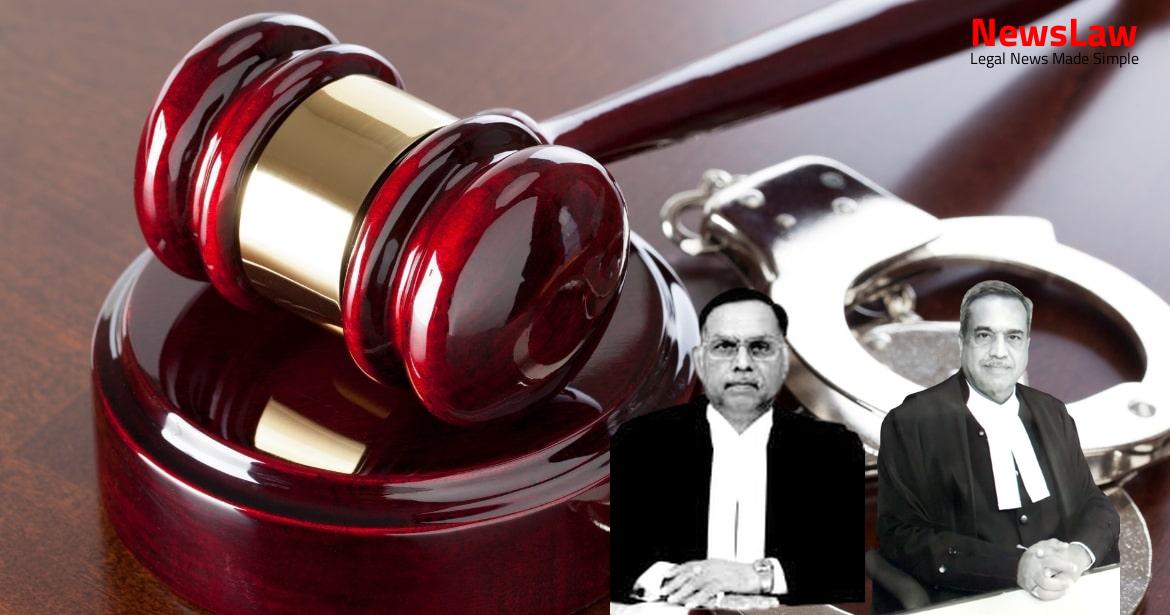In a significant legal case, the Supreme Court Of India has delivered its judgment in the matter between Devraj and the injured individuals, Chandrakant & Suryakant. The Court has made crucial decisions regarding the convictions and sentences of the accused parties involved in the incident. This judgment underscores the importance of upholding justice and ensuring fair outcomes for all parties involved.
Facts
- The trial court convicted the accused under Section 323 read with Section 34 IPC, sentencing them to six months of rigorous imprisonment and a fine of Rs.500/- each.
- The High Court affirmed the conviction of Devraj under Section 307 IPC read with Section 34 IPC but reduced his sentence to five years and imposed a fine of Rs.25,000/-.
- The High Court acquitted Ashish and Balaji from the charge under Section 307 IPC and convicted them under Section 326 IPC instead, with a reduced sentence already undergone and a fine of Rs.25,000/- each.
- Accused Devraj was also convicted under Section 326 IPC and received a reduced sentence to time already served, with a fine of Rs.15,000/- imposed.
- Accused Ashish and Balaji were maintained under the conviction and sentence of imprisonment under Section 323 IPC read with Section 34 IPC.
- The accused were directed to pay compensation amounts to PW-6 Chandrakant and PW-7 Suryakant from the fine deposited by them.
- The High Court upheld the conviction and sentence under Section 323 read with Section 34 IPC and imposed a fine of Rs.25,000/- with a default clause on Devraj.
- The appellant-complainant has filed an appeal challenging the reduction of sentence of imprisonment of the accused.
- Injuries noticed on the person of the complainant Suryakant include punctured wounds on the left knee, left parieto occipital region, and right side of the chest post-axillary line.
- The incident occurred on 24.01.2012 at about 05.30 PM when the accused fired shots at the complainant and another individual, leading to injuries.
- The accused were alleged to have used weapons such as a pistol, stick, stone, fists, and a knife during the altercation.
- The trial court convicted the accused under Section 307 IPC read with Section 34 IPC and sentenced them to rigorous imprisonment and fines.
Also Read: High Court Acquittal Case of State of Uttar Pradesh v. Jai Prakash
Arguments
- Appellant’s counsel argued that the injury caused by Accused No.1 was grievous and capable of causing death to the victim.
- Appellant’s counsel criticized the High Court for reducing the imprisonment sentence of the accused.
- Respondents’ counsel argued that the High Court’s decision was based on the age and circumstances of the accused.
- Respondents’ counsel mentioned that the High Court increased the fine amount to be paid as compensation.
- Respondents’ counsel defended the High Court’s discretion in reducing the imprisonment sentence.
Also Read: Judgment Review: Supreme Court’s Ruling on the Capital Punishment Appeal
Analysis
- The courts exercise discretion in awarding sentences based on facts and circumstances of the case.
- Intention of the accused can be deduced from the nature of injuries and other circumstances.
- The High Court’s decision to reduce the sentence of accused No.1-Devraj was deemed incorrect due to the severity of injuries caused to PW-6-Chandrakant.
- Inconsistency in approach to maintaining a proportion between the gravity of the offence and the punishment is noted.
- Imposition of a reasonable sentence is crucial to prevent sufferance of the victim and the community.
- The court’s decision to reduce the imprisonment sentence of accused No.1-Devraj was criticized.
- Brief reasons must be recorded to justify the choice of sentence.
- Expert medical opinion highlighted the potential lethality of the injuries inflicted on PW-6-Chandrakant by accused No.1-Devraj.
- A person committing an offence under Section 307 IPC can face imprisonment for life.
- The injuries sustained by PW-6-Chandrakant and PW-7-Suryakant were described in detail.
- The nature of injuries and the weapon used must be considered when determining the appropriate sentence.
- The gravity of the offence should be the basis for imposing a commensurate sentence.
- To justify conviction under Section 307 IPC, it is necessary to prove intention to cause death or the intention to cause such injury which is likely to cause death.
- Mere existence of a weapon or the fact that the act resulted in a dangerous injury is not sufficient to prove the offence under Section 307.
- The prosecution must establish beyond reasonable doubt that the accused had the specific intention to cause death or a grievous injury.
- The High Court reduced the sentence of imprisonment from seven years to five years and increased the fine amount to Rs.25,000/-
- Part of the fine amount was ordered to be paid as compensation to the injured PW-6-Chandrakant and PW-7- Suryakant.
- Accused No. 1 paid the enhanced compensation, which was later withdrawn by the injured victims.
- For conviction under Section 307 read with Section 34 IPC, the first accused-Devraj shall undergo rigorous imprisonment for six years and six months.
- Courts should impose punishment befitting the crime to reflect public abhorrence of the crime.
- A reasonable proportion between the seriousness of the crime and the punishment must be maintained.
- Meagre sentences imposed solely based on the lapse of time will be counterproductive in the long run and against the interest of society.
- Courts must consider both the rights of the accused and the interest of the victim and society at large in determining the appropriate punishment.
- Accused No. 2 (Ashish) was 19 years old at the time of the occurrence, while Accused No. 3 (Balaji) was 38 years old.
- Considering their age and family circumstances, as well as the lack of criminal antecedents, the High Court decided to reduce their sentence to the period already undergone.
- Accused Nos. 2 and 3 were not armed with deadly weapons during the incident.
- The High Court did not interfere with the acquittal of Accused Nos. 2 and 3 under Section 307 read with Section 34 IPC.
- Accused Nos. 2 and 3 were alleged to have attacked the injured with fists, kicks, and sticks.
- Based on the facts, circumstances of the case, and evidence on record, the Court declined to interfere with the acquittal of Accused Nos. 2 and 3 under Section 307 read with Section 34 IPC.
Also Read: Compromise Reached: Reddy Satyanarayana vs Narapureddy Sanyasi Rao
Decision
- The High Court judgment dated 12.07.2018 in Criminal Appeal No.11 of 2016 is set aside.
- Accused No.1-Devraj is sentenced to undergo rigorous imprisonment for six years and six months for conviction under Section 307 read with Section 34 IPC.
- Accused No.1-Devraj is directed to surrender within four weeks to serve the remaining sentence.
- Fine amount imposed on the accused and the direction to pay compensation to the injured under Section 357 Cr.P.C. is maintained.
- Accused No.2 and Accused No.3 are acquitted under Section 307 read with Section 34 IPC, but convicted under Section 326 IPC read with Section 34 IPC.
- The sentence of imprisonment imposed on Accused No.2 and Accused No.3 is reduced to the period already undergone.
- Accused No.2 and Accused No.3 are directed to serve the remaining sentence if applicable.
Case Title: SURYAKANT BABURAO @ RAMRAO PHAD Vs. THE STATE OF MAHARASHTRA
Case Number: Crl.A. No.-001161-001161 / 2019



